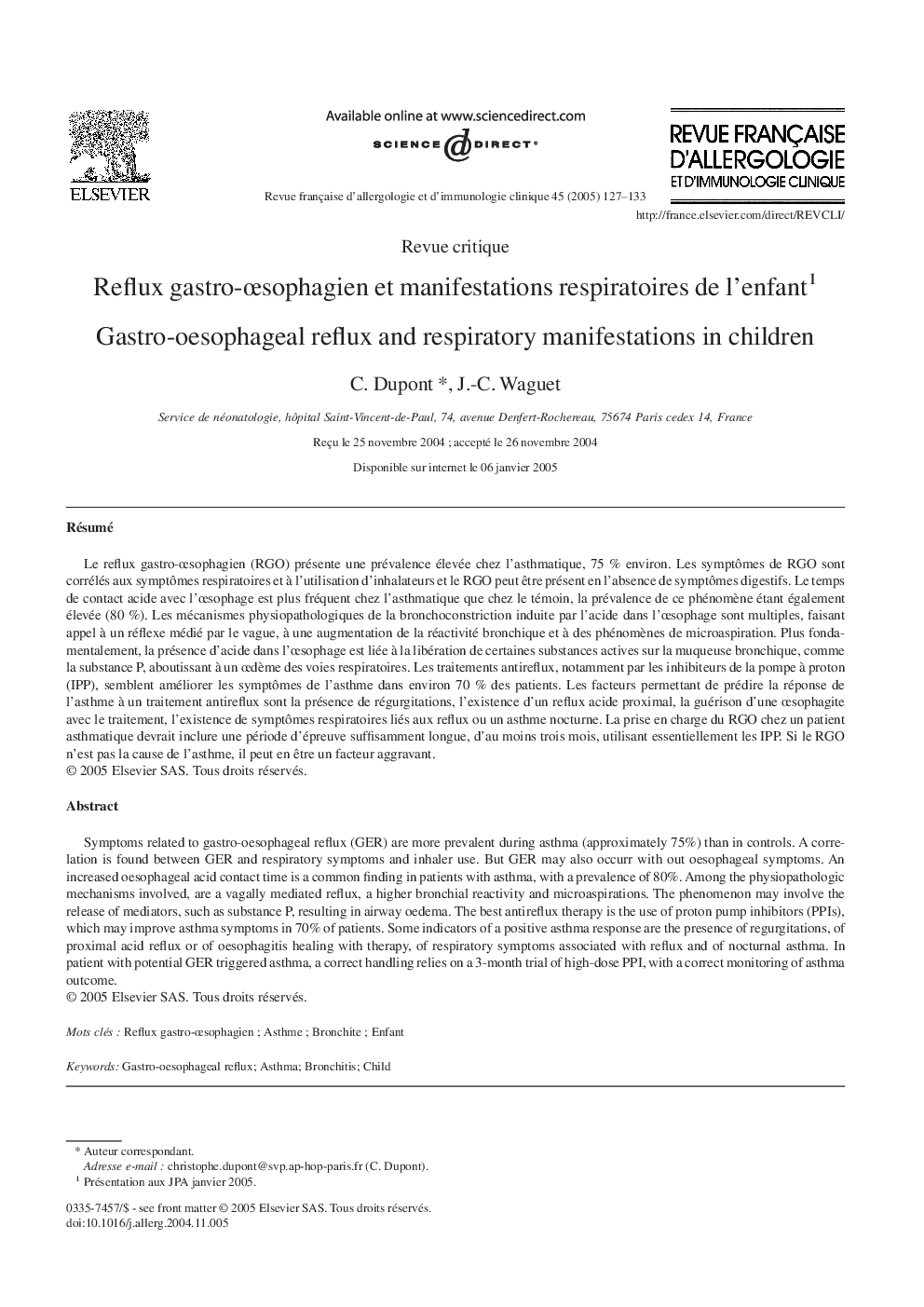| Article ID | Journal | Published Year | Pages | File Type |
|---|---|---|---|---|
| 9100317 | Revue Française d'Allergologie et d'Immunologie Clinique | 2005 | 7 Pages |
Abstract
Symptoms related to gastro-oesophageal reflux (GER) are more prevalent during asthma (approximately 75%) than in controls. A correlation is found between GER and respiratory symptoms and inhaler use. But GER may also occurr with out oesophageal symptoms. An increased oesophageal acid contact time is a common finding in patients with asthma, with a prevalence of 80%. Among the physiopathologic mechanisms involved, are a vagally mediated reflux, a higher bronchial reactivity and microaspirations. The phenomenon may involve the release of mediators, such as substance P, resulting in airway oedema. The best antireflux therapy is the use of proton pump inhibitors (PPIs), which may improve asthma symptoms in 70% of patients. Some indicators of a positive asthma response are the presence of regurgitations, of proximal acid reflux or of oesophagitis healing with therapy, of respiratory symptoms associated with reflux and of nocturnal asthma. In patient with potential GER triggered asthma, a correct handling relies on a 3-month trial of high-dose PPI, with a correct monitoring of asthma outcome.
Keywords
Related Topics
Health Sciences
Medicine and Dentistry
Anesthesiology and Pain Medicine
Authors
C. Dupont, J.-C. Waguet,
